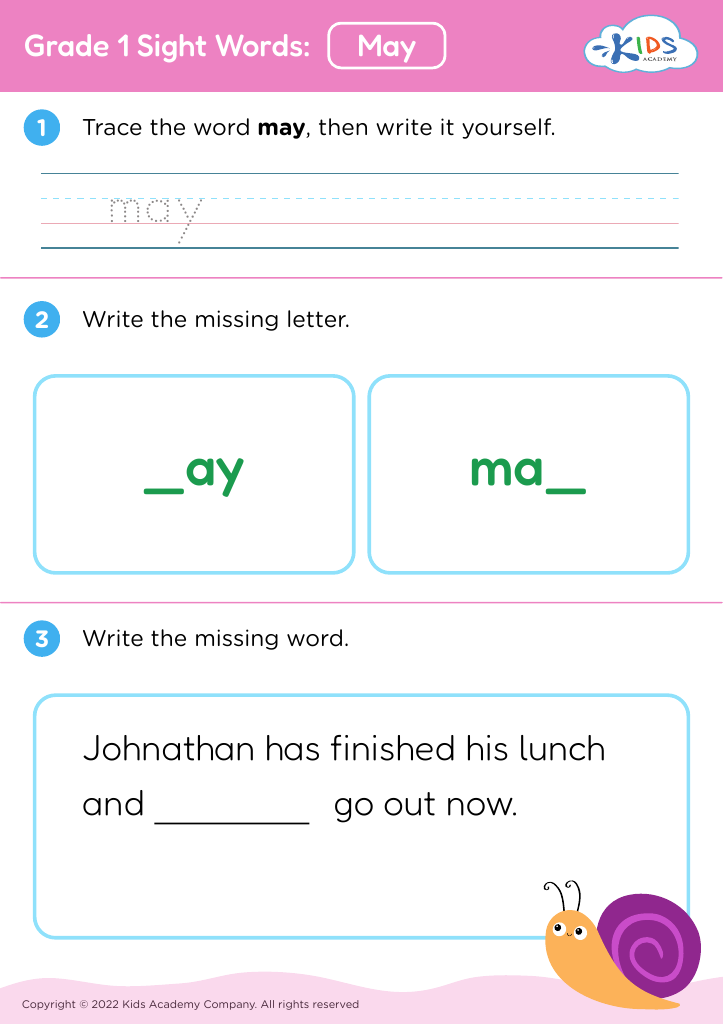Basic arithmetic practice Reading Worksheets for Ages 4-6
3 filtered results
-
From - To
Our "Basic Arithmetic Practice Reading Worksheets for Ages 4-6" offer an engaging way for young learners to build foundational math skills. These worksheets combine simple arithmetic problems with fun reading exercises to reinforce both literacy and numeracy. Through colorful illustrations and interactive content, children learn to count, add, and subtract while also developing their reading comprehension. Perfect for early learners, these resources help kids build confidence in their math and reading abilities through enjoyable and educational activities. Enhance your child’s learning journey with our expertly crafted, easy-to-use practice sheets!
Parents and teachers should care about basic arithmetic practice and reading for ages 4-6 because these foundational skills are critical for a child's overall cognitive development and future academic success. Early exposure to arithmetic helps children develop essential problem-solving abilities and logical thinking, which are fundamental in everyday life and later academic subjects, like science and technology.
Reading proficiency at a young age fosters a child's language development, expands their vocabulary, and improves communication skills. It also ignites curiosity and imagination, which contributes to emotional and social development. Combined, reading and arithmetic practice enhance a child's attention span, memory, and ability to concentrate, setting the stage for effective learning habits in later years.
Furthermore, early success in these areas builds confidence and a positive attitude towards learning. This enthusiasm for education can encourage a child to tackle more complex challenges as they grow. Providing children with a strong foundation in basic arithmetic and reading enables their cognitive abilities to flourish, supporting lifelong learning and adaptability in an increasingly complex and literate world. Investing time in these practices signifies the importance of education and underscores the joint role parents and educators play in nurturing capable, confident, and well-rounded individuals.



















